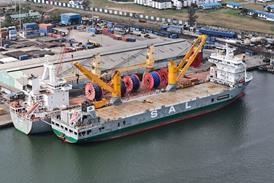Crew managers attempting to repatriate or relieve seafarers are facing a number of challenges, and these may be the tip of the iceberg for the shipping industry, according to crewing specialist Henrik Jensen.
A number of companies and maritime organisations have joined forces to investigate how crew changes can be made possible during the Covid-19 pandemic. For instance, the International Chamber of Shipping (ICS) and the International Transport Workers’ Federation (ITF) have issued a joint call on behalf of seafarers to governments to facilitate the essential movement of seafarers and marine personnel, as HLPFI reported here.
However, global travel restrictions and quarantine requirements are proving difficult to overcome.
According to Jensen, founder of Danica Crewing Services, part of the problem is that each country has its own version of measures in place to prevent the spread of the coronavirus. “At present every country has its own set of rules. As a collective industry we now have work in progress to set up an industry standard on how seafarers should be tested and stay in self-isolation before travelling etc.
“This has two purposes: to develop a common standard policy which, if followed, would allow seafarers to cross borders and move to their vessels; and to reduce the risk to existing crew members of bringing the virus onboard.”
One of the biggest hurdles to overcome is the lack of commercial flights to facilitate crew changeovers. The industry now needs to identify key ports for changeovers and charter flight options.
Speaking for Danica, Jensen said: “The problem we, and I guess many others, have is that the majority of our vessels are in the tramp trade with the schedule not known much ahead – which makes it difficult to determine the ports. It is very difficult to foresee where vessels will be at a certain time and therefore very difficult to consolidate crew changes with other shipping companies.
“There is no playbook for this situation – new solutions need to be created to cope with the problems. It is important that all stakeholders in the industry come together to get in place common standards and new modus operandi to solve the problem. We need to help overdue seafarers as soon as possible to eliminate the safety risks posed by the stress and fatigue which is building up now.”
Costs are also mounting, with many crew members being paid extra salary as compensation for staying longer onboard or spending time in quarantine facilities. “Shipping companies are already under financial pressure, with ships being idle, and I am afraid a huge crisis is looming,” warned Jensen.
















